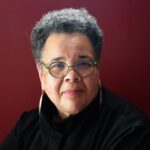Roman Catholicism
Syllabi - Topic: Roman Catholicism - 20 results
Select an item by clicking its checkboxA 2011 course by Gerald Schlabach at the University of St. Thomas "(enables students to think systematically about the Christian moral life within the framework of the Catholic tradition, while more broadly engaging current debates in Christian ethics and moral theory."
A 2013 course by Maxwell Johnson at the University of Notre Dame explores "the origins, evolution, and theological meaning of the central feasts and seasons of what is called the liturgical or Church year."
A 2008 course by Thomas Leininger and Tom Reynolds at Regis University considers "modern Catholic literature" from a variety of perspectives.
A course by Paul Misner at Marquette University on "the area of relations between the RC Church and a European society in the grip of secularization" from "roughly the Enlightenment or French Revolution to Vatican II." Special attention is given to "social Catholicism."
A 2013 course by Anne McGowan at the University of Notre Dame explores "the origins, development, ritual components, and theological significance of Christian liturgical prayer" with special attention to the Roman Catholic tradition.
A 2014 course by Stuart Squires at Brescia University examines "the nature and mission of the church through a variety of avenues: biblical examination, theological exploration, historical investigation, and personal reflection."
A 2010 course by Dawn Nothwehr at the Catholic Theological Union presents Catholic sources towards a "moral, sustainable and reverential ways of living."
A 2016 course by Marianne Farina CSC at the Dominican School of Philosophy and Theology investigates "core principles and teachings about human sexuality" from the Roman Catholic perspective. Topics such as "marriage, family life, celibacy, and biomedical issues related to human sexuality" are addressed.
A 2012 course by Shawn Madison Krahmer at Saint Joseph's University analyzes the historical origins and theological significance of "a concern for social, economic and political justice" in Christianity with special attention to the Catholic tradition.
A 2002 course by Gerald Schlabach at the University of St. Thomas "examines Catholic reflection on social structures and patterns of moral behavior as they are expressed in economic, social and political contexts."
A 2014 course by Stuart Squires at Brescia University focuses "on the Catholic Churchâs responses to particular social justice issues in our time as well as the guiding principles that inform the Churchâs positions."
A 2007 course by Peter McCourt at Virginia Commonwealth University is an "exploration of the Catholic church's major theological, ethical, constitutional and strategic concerns, and an analysis of Catholic social teaching and its relation to current social issues such as abortion, peace and conflict, poverty, and human rights."
A 2013 course by Joseph Boenzi at the Dominican School of Philosophy and Theology "offers a general history of the life, work and thought of this missionary, bishop, founder and doctor of the Church."
A 2002 course by Joe Incandela at Saint Mary's College "examines Catholic positions on some of the most controversial social, ethical, and religious issues of our day: abortion, birth control, the relation between official Catholic teachings and individual conscience, reproductive technologies, cloning, stem-cell research, physician-assisted suicide, euthanasia, the allocation of scarce health resources, the ordination of women priests, capital punishment, nuclear weapons, terrorism, waging war vs. embracing peace, poverty and the United States economy, and the effect of being a member of the Church on being a citizen of the state."
A 2014 course by Stuart Squires at Brescia University surveys "the theological developments and controversies that have shaped Christian thought from the fourth to the twenty-first centuries" through lens of how doctrine has developed within Roman Catholicism.
A 2006 course by Peter McCourt at Virginia Commonwealth University is a "study of the contemporary Catholic Christian response to the questions of God and the experience of the sacred in life. . . . Topics will include: the Second Vatican Council and its reforms, theologies of liberation, feminist theology, Catholic Social Teaching, biomedical ethics/issues, eco/creation theology.â
A course by Paul Misner at Marquette University traces "modern Catholic developments in systematic theology" from "the rise of Ultramontanism and Vatican I" through Vatican II.
A 2014 course by Reid Locklin at University of Toronto "offers an introduction to Christianity as it is lived, reflected upon and celebrated in the Roman Catholic tradition."
A course by Alan Altany at Marshall University "is an exploration of the origin and development of the Roman Catholic world in all its multiple expressions: theology, politics, liturgy, morality, arts, spirituality, monasticism."
A 2019 course by Christy Lang Hearlson at Villanova University adopts a practical theology approach ("a way of doing theology that attends to lived reality and practice, engages in interdisciplinary dialogue, and seeks to cultivate practical wisdom for life") to critical issues of contemporary life using the case study of "consumerism." The course has "a particular (but not exclusive) focus on Roman Catholicism."

